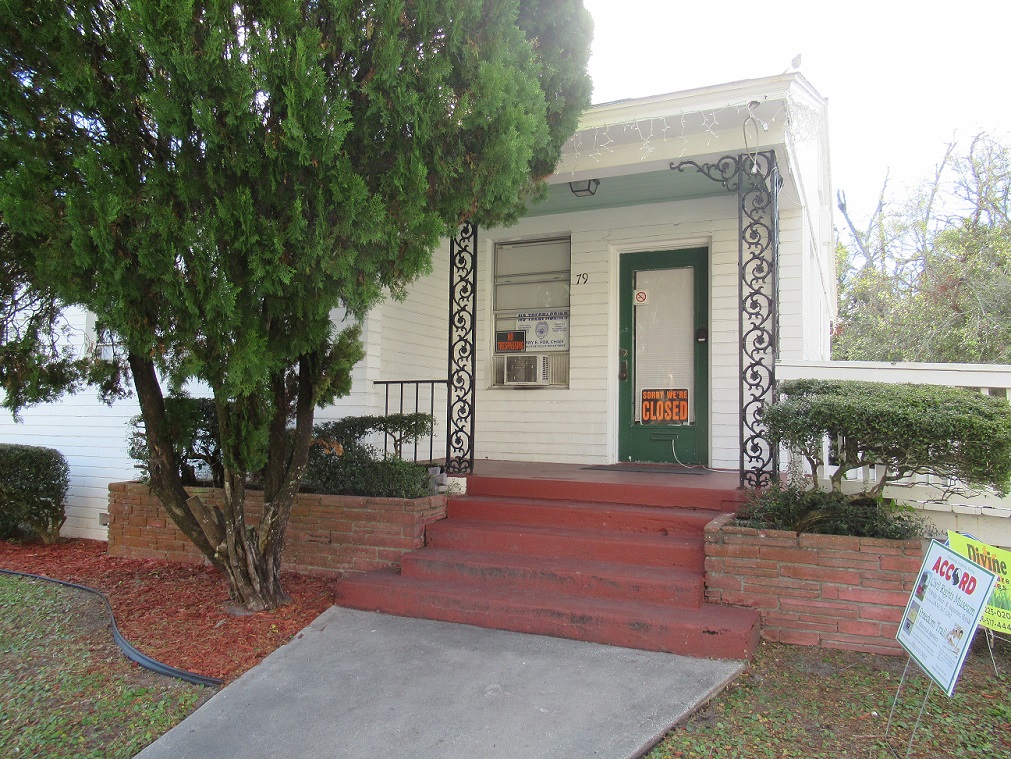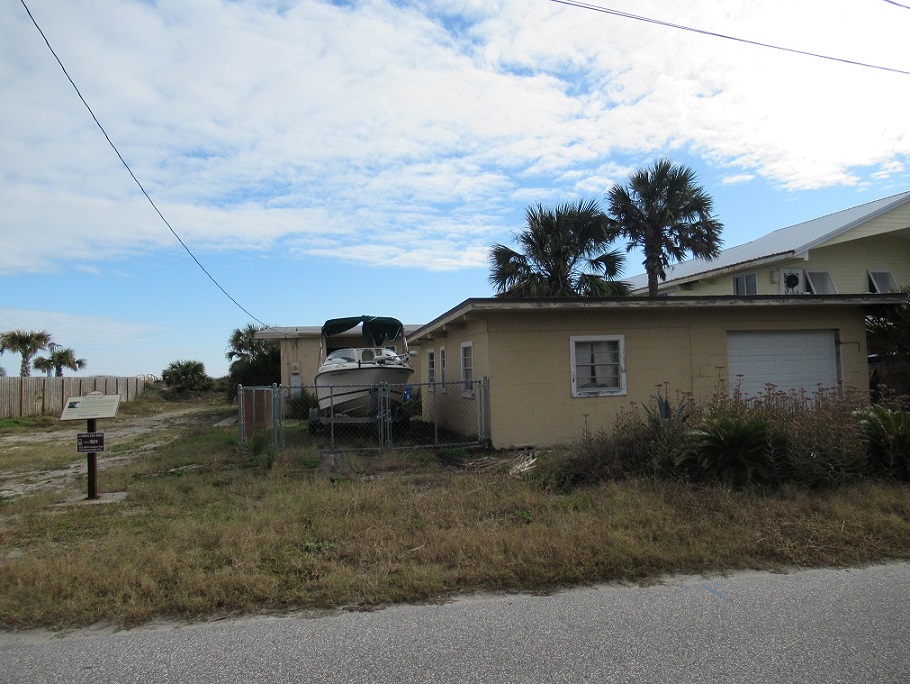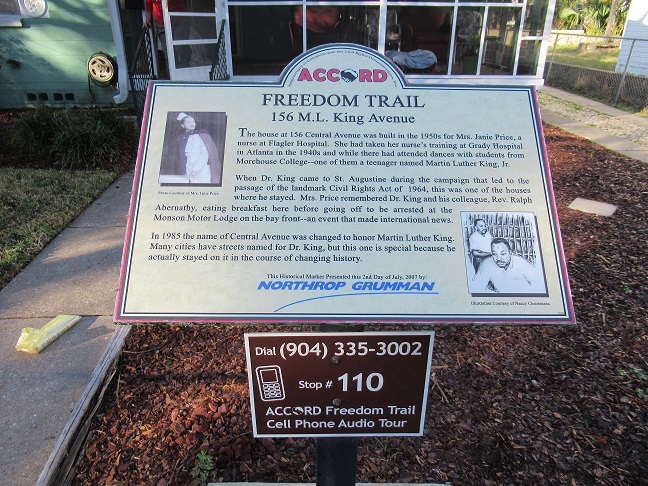St. Augustine is the Nation’s oldest city and therefore a historical site, which is evident through the forts, monuments, and dozens of museums and galleries that display the artifact’s of its past. However, not too long ago, the ancient city made national history and headlines. The events in the months leading to the Civil Rights Act, passed in 1964, shaped the world we know today, and Dr. Martin Luther King Jr. is largely to thank for St. Augustine’s seat at the table.
Well-known activists and the Ku Klux Klan used the city of St. Augustine as their battlefield; just as the Spaniards, British, and Native Americans had before them. When Dr. Martin Luther King Jr. decided to visit St. Augustine, the quaint downtown, which has been the center of many historical matters, returned to its rowdy nature.

This is a photo of the Public Market in the Plaza de la Constitución. Before slavery was abolished this was the venue of human auctions. Eventually, many protests and speeches were held here during the civil rights movement in St. Augustine. It is unclear if Dr. Martin Luther King Jr. ever spoke or protested here, however, it is certain that he organized several protests that took place here.
Dr. Martin Luther King Jr.

ACCORD Civil Rights Museum and the old “headquarters” of the civil rights movement in St. Augustine.
Dr. Robert B. Hayling convinced King to travel to St. Augustine in 1964. Hayling was a dentist and the leader of the movement in St. Augustine. He had an office at 79 Bridge Street, and rumors say that this was the headquarters of the civil rights movement in the old city.
- This is the plaque on the front lawn of Janie Price’s home, from the ACCORD Civil Right Museum. King stayed with Janie Price in the summer of 1964.
- A St. Augustine street named after Dr. Martin Luther King Jr., honoring his efforts during the civil rights movement.
There is no official record of the homes King stayed in or businesses he visited while in St. Augustine. However, there is a record of him frequenting a street off King Street, by the Plaza de la Constitución, that is now named after him. In fact, during the 1960’s, Janie Price lived at what is now 156 Martin Luther King Jr. Avenue, and invited King to stay with her before he was arrested at the Monson Motel. King and Price had met years earlier at Morehouse College and were reunited in St. Augustine.

5480 Atlantic View, St. Augustine, FL 32080, is one of several safe houses Martin Luther King Jr. stayed in during the summer of 1964.
On June 7th of 1964, King was staying in the home of Mrs. And Mr. Canright at 5480 Atlantic View, on Anastasia Island. However, the address of his safe house was leaked by the media and the house was shot at in a drive-by. Ironically, he moved to this house after fearing for his life in the home of Janie Price.
King’s Arrest in St. Augustine
After a lull in the civil rights movement in the south, King traveled to St. Augustine to push movement efforts forward. In fact, during his stay, he frequently spoke at churches, organized demonstrations in the Plaza de la Constitución, and even spent a night in jail.

This plaque reads “These steps were salvaged when the Monson Hotel was demolished in 2003 and remain tribute to Dr. Martin Luther King Jr. who was arrested here in 1964.”
On June 11th, 1964 King was arrested on the steps of the Monson Motel for trespassing when he and others attempted to eat at the establishment which had a whites-only policy. After King and followers refused to leave, Jimmy Brock, the manager, had them arrested and they spent a night in what is now the Old St. Johns County Jail. This made national headlines and started a buzz around the civil rights movement in the south – which is just what King wanted to accomplish.

This plaque reads “The Monson Motel, formerly located on this site, was the focal point of demonstrations led by Dr. Robert Hayling and Dr. Martin Luther King Jr. that resulted in the passage of the Landmark Civil Rights Act of 1964.”
The steps of the Monson Motel were preserved as a historical item and are now located in the property that replaced the Monson after it was knocked down, the Hilton St. Augustine Historic Bayfront. King’s arrest along with demonstrations he organized are believed to have led to Senate passing the Civil Rights Act of 1964.
Disclaimer: Every effort is made to ensure the accuracy of information on the City Blog.
Sharing and re-posting this blog is encouraged. Please credit OldCity.com when sharing.
Photo credits: OldCity.com


